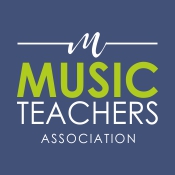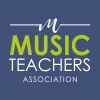The Music Teachers’ Association – in partnership with the ISM and Music Mark – has sent a letter to English Secretary of State for Education, Gavin Williamson, asking for increased support for Music Education at this highly significant time for funding review. We believe that the students in our schools deserve high quality music provision supported by the foundation of a well funded arts education.
MTA President Simon Toyne comments on the letter:

‘Music in schools is supported by an extraordinary musical ecosystem of music education hubs and national youth music organisations. This provides the opportunity for every young person not just to make their first steps in music but to progress to the next stages in their musical development. Some will become professional musicians; some will play vital roles in our country’s thriving culture of amateur music-making; some will make their careers in our world-leading creative industries; many will be enthusiastic participants in live and recorded music-making as listeners; all of them will have their lives significantly enhanced by their early experiences of music.
‘Music education that is truly outstanding takes time and care to take root and develop. We call on the government to help us facilitate the musical lives of our young people through committing to sustained, long-term funding of our music education hubs and national youth music organisations.’
The Rt Hon Gavin Williamson CBE MP
Secretary of State for Education
20 Great Smith St,
London SW1P 3BT
Dear Secretary of State for Education
With the comprehensive Spending Review currently in progress, we are writing to you to stress the importance of sustained funding from the Department for Education for the many organisations working in the music education sector in England. Through the vital work of the 120 Music Education Hubs, the National Youth Music Organisations, organisations funded by the Music and Dance Scheme and the In Harmony programmes, the country’s children and young people are enabled to access opportunities to explore, learn and progress in music.
England is unique in its commitment to music education through both the National Plan for Music Education (NPME) and funding to support the aspirations of that plan. Over the past eight years, the realisation of the NPME has resulted in thousands more children and young people making music, learning instruments, composing, performing and experiencing high-quality musical events in addition to their statutory curriculum entitlement. The picture from annual data returns demonstrates the huge impact of the DfE’s funding for music education but more could be done.
We welcome the government’s commitment to rebuild, level up and invest in people and places spreading opportunities more evenly across the nation as part of the recovery from coronavirus. Music educators have been at the forefront of innovative practice over the last six months, ensuring that musical learning has remained available to children and young people across the nation during the pandemic. There are countless examples of how music has been central to their lives and wellbeing. Addressing the challenge of accessibility has always been a key driver for the sector and many valuable and exciting lessons have been learnt which will permanently influence the way music education is delivered.
The music education sector eagerly awaits news of the refresh of the NPME and is keen to contribute to its development, having gained so many insights in the last six months. We are ready to be part of a ground-breaking NPME which prioritises equitable, accessible and diverse musical opportunities for all children and young people, regardless of where they live and their social or cultural circumstances. Creative subjects have never been more important to wellbeing because they can help make sense of everything young people have been through in recent months.
Since we wrote to you last year to highlight the ongoing financial challenges facing Music Education Hubs, a further 71,000 pupils have joined school rolls and the sector remains beleaguered from above-inflation pressures in the costs of staffing, venues and equipment. Add to this the persistent uncertainties over what can be delivered in and out of schools, inconsistent local advice, variable interpretation by schools and venues and the ever-present threat of local restrictions. With deficits, lost income and eroded reserves, the sector desperately needs not only assurance of the DfE’s ongoing financial support but for 2021/22 a significant boost to ensure its survival.
We are therefore calling on you to commit to a grant of £110m in 2021/22 to distribute to Music Education Hubs. We also call on you to pledge to provide a similar increase to all other music education programmes supported by the DfE, such as for the In Harmony programme, National Youth Music Organisations and the Music and Dance Scheme. This will help achieve the government’s policy of levelling up access to music education and place it at the heart of the recovery curriculum.
In addition, in recognition of the importance of organisational stability to strategic planning and sustained delivery, and of the six months of unprecedented and unrelenting uncertainty that music education has experienced, we ask that you make an indicative promise of support for the sector for three to four years. This will enable music education organisations to enjoy the more stable future that is the Government’s ambition for the country.
Schools are making a strong effort to accommodate safety measures in response to coronavirus. Our #CanDoMusic campaign has shone a light on thousands of schools that are placing music at the heart of school culture since their full return at the beginning of the month; indeed, many have chosen to increase their music provision as a specific response to their community’s needs. However, we are hearing reports that not all schools have been delivering music education in line with the national curriculum. There may be many reasons for this but at this time when music has never been more important for our school children we urge the DfE to make it clear that all schools, whatever their status, deliver a broad and balanced curriculum which includes music across all relevant key stages in line with the national curriculum.
Our children and young people both deserve and need a world class music education. They also deserve and need to be able to access that education over a sustained period of time, to enable them to progress and flourish.
The music education sector stands ready to provide this world class education: will you facilitate them to do so?
Yours sincerely,
Simon Toyne (President, MTA)
Bridget Whyte (CEO, Music Mark)
Deborah Annetts (Chief Executive, ISM)
This letter was supported by:
Aleksander Szram (Programme Leader: BMus and Foundation, Trinity Laban Conservatoire of Music and Dance)
Ann Wright (Director of Education, VOCES8 Foundation)
Asa Malmsten (CEO, Sound Sense)
Carien Meijer (Chief Executive, Drake Music)
Dr Julia Partington (University Lecturer, Music Education, Newcastle University)
Dr Michelle Phillips (Chair, MusicHE)
Dr Sophie Fuller (MMus programme leader, Trinity Laban Conservatoire of Music and Dance)
Fiona Pendreigh (Chair of Music Education Council, Music Education Council)
Freya (Digital Learning Coordinator & PA, Trinity Laban Conservatoire of Music and Dance)
Helen Julia Minors (School Head of Performing Arts; Co-Chair Equality, Diversity and Inclusion Music Studies Network UK, Kingston University)
Jennifer Coleman-Peers (Interim Chief Executive, Voices Foundation)
Joe Townsend (Programme Leader BA Music Performance and Industry , Trinity Laban Conservatoire)
John Habron (Head of Music Education, Royal Northern College of Music)
Judith Robinson (Head of Education, Sound and Music)
Leslie East (Chair, The Association of British Choral Directors)
Mark Pemberton (Director, Association of British Orchestras)
Matt Griffiths (CEO, Youth Music)
Michael Elliott (Chief Executive, ABRSM)
Neil Chippington (Chair, Choir Schools’ Association)
Neil Preston (Chairman, European Guitar Teacher’s Association UK)
Niav O’Higgins (Alan Bush Music Trust )
Paul McManus (CEO, Music Industries Association)
Philip Flood (Director, Sound Connections)
Prof. Nic Pendlebury (Head of String Department , Trinity Laban Conservatoire of Music and Dance)
Professor Linda Merrick (Principal, Royal Northern College of Music)
Sergio De Simone (Head of keyboard , Trinity Laban conservatoire of music and Dance )
Tim Palmer (Head of Music Education, Trinity Laban Conservatoire of Music and Dance)



